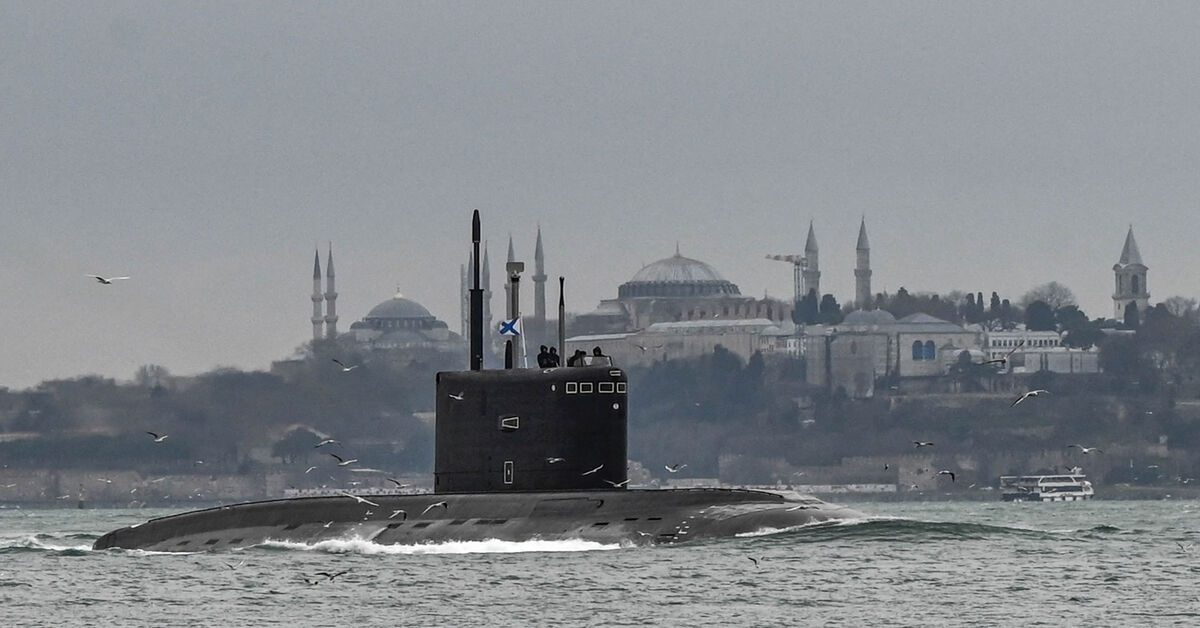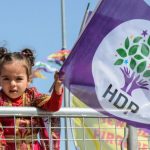Turkey’s traditional policy on Ukraine – a mix of deterrence with dialogue towards Russia – is now in need of revision with the failure of the first part. But although deterrence has failed, Turkey is still pursuing the dialogue aspect by trying to mediate between the two sides. As expected, Russian and Ukrainian foreign ministers’ meeting in Turkey has not produced a result, but it was a boost for Turkey’s international stature.
What has followed since the invasion is not a new policy – yet – but is a new discourse set to induce revisions to the existing policy. Crucial in this new language is that Turkey has started to use the word ‘war’ to define the invasion, which requires Ankara to then restrict the passage of Russian warships through its straits as outlined in the Montreux Convention of 1936 – as it then did a few days into the invasion.
Before the invasion occurred, deterrence for Turkey meant providing Kyiv with defence equipment, specifically armed drones, to beef up its security, while dialogue spoke to Ankara’s preference for diplomacy over military escalation as the way out of this crisis.
Turkey’s control over the Bosphorus and Dardanelles straits makes it a strategic player in the Black Sea and therefore also in the invasion as Ukraine specifically called for it to shut down the straits and the international community welcomed Turkey’s decision to restrict passage.
Russia becoming bogged down in Ukraine would curtail its power in conflict zones where Turkey and Russia are both involved, not least in the Middle East
In the short-term, these restrictions will not be consequential for Russia as it already has naval dominance in the Black Sea. But if the invasion is prolonged, then losing the ability to move warships between its Black Sea and Mediterranean fleets is likely to affect Moscow. The decision will also impact Russia’s role in the conflict zones in Syria and Libya, but Moscow may soon test Western resolve in Libya by escalating tensions.
Economic problems make sanctions difficult
This current conflict also comes during a deepening economic downturn in Turkey and, just one year from a presidential election, President Recep Tayyip Erdogan’s dimming political future is dependent on what now appears an increasingly unlikely economic rebound.
Given the country is already overexposed to Russia economically, it is unlikely to actively join international economic sanctions – even when Russia annexed Crimea in 2014, Turkey declared this move as illegal but did not impose sanctions on Moscow and Turkey remains Moscow’s largest trade partner in the MENA region.
Russians accounted for 19 per cent of tourists visiting Turkey in 2021 and Ukrainians around 8.3 per cent. Russia is also the second largest provider of energy for Turkey after Azerbaijan, and Turkey imports a whopping 80 per cent of its grains from Russia and Ukraine.
However, given the systemic nature of sanctions, Ankara might be forced to abide by their consequences so it may have to passively implement some of them – especially those related to the banking system. But this would be unlikely to trigger retaliatory measures from Russia.80%
of Turkey’s grain is imported from Russia and Ukraine
Two other key factors have a particular impact on determining the next phase of Turkey’s policy. If the invasion becomes a protracted war of attrition, with a real prospect of it morphing into a quagmire for Russia, and if the current international resolve in confronting Russia continues, then Ankara is likely to ratchet up its own anti-Russian invasion rhetoric and continue providing military equipment and assets to Kyiv.
Moscow’s complete dominance in the Black Sea is ominous for Turkey which is also a Black Sea power, while Russia becoming bogged down in Ukraine would curtail its power in conflict zones where Turkey and Russia are both involved, not least in the Middle East. Therefore, Turkey is also geopolitically overexposed to Russia.
Ankara and Moscow have long been competing and engaging with each other via different conflict zones such as Syria, Libya, and Nagorno-Karabakh. But there is a big difference between Turkish-Russian engagements in the Middle East and North Africa and in the post-Soviet space.19%
of the tourists visiting Turkey in 2021 were Russians
Vladimir Putin’s rhetoric which questions the foundation of Ukrainian independence makes it clear he regards post-Soviet space as his zone of domination and is therefore likely to be more sensitive and less tolerant towards Turkey’s Ukraine policy if it is seen as overtly hostile. Whereas Turkish-Russian engagements in the Middle East has relatively reduced the Western influence in that region, in the post-Soviet space Moscow sees Ankara encroaching on its own influence.
But as both actors are likely to increase their interaction in post-Soviet space, the competitive – possibly hostile – nature of Ankara-Moscow relations will become more pronounced. And the Ukraine invasion has happened just as Turkey’s own international relations are undergoing one of its most turbulent periods, with Turkey being targeted by the US via its Countering America’s Adversaries Through Sanctions Act (CAATSA) for purchasing Russian S-400 missile systems.
Turkey’s attempts at strategic balancing would now be potentially highly costly for Ankara, and this invasion illustrates the necessity of more clarity about Turkey’s place in any new European security architecture
The crisis-ridden nature of Turkish-Western relations mean Ankara is more careful in pursuing policies which could put it on a collision course with Moscow. But Ankara’s policy is not one of equidistance between Ukraine and Russia – it provides military support to Kyiv and closed the straits – the question is how far and how clearly it would venture into the anti-Russia camp.
In addition to Ukraine, there are other regional crises which are laying the groundwork for more convergence between Turkey and the West, such as the rise of Serbian nationalism and separatism in Bosnia and Herzegovina, developments in South Caucasus, and Afghanistan. Whether convergence can turn into cooperation remains unknown, but the level of engagements has significantly increased.
Balancing policy is untenable
Turkey has also largely reached the limits of its erstwhile policy of geopolitical balancing between Russia and the West – a strategy which belonged to an era in which Russian-Western relations were discussed within the framework of rivalry, not conflict. The Ukraine invasion, particularly if it is prolonged, necessitates making choices especially as Turkey is a NATO member.
The grey areas have come to an end and Germany’s cancellation of Nordstream II is a perfect example of the new era. Turkey’s attempts at strategic balancing would now be potentially highly costly for Ankara, and this invasion illustrates the necessity of more clarity about Turkey’s place in any new European security architecture.
By: Galip Dalay
Source: Chatham House



